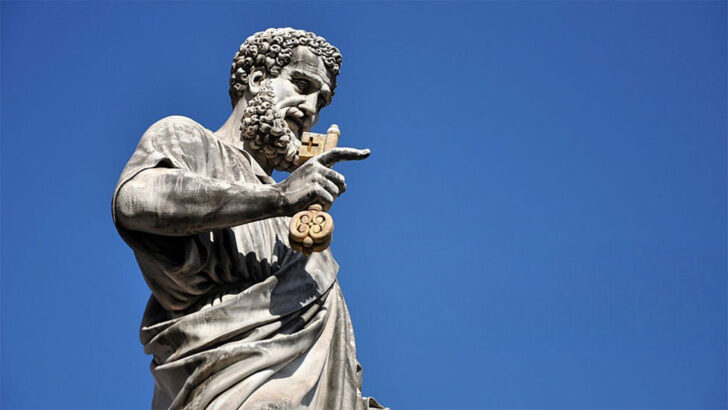In much of the secularised world today, we live in a climate that’s somewhat anti-Christian and anti-Church (as contradictory as this may sound in a culture that still considers itself Christian). But the truth is that in many circles today it is fashionable to bash Christianity, especially its churches, be they Roman Catholic, Protestant, or Evangelical. Invariably the criticism will focus on inconsistencies, faults, and historical sins inside these churches. Indeed, the expression, “I am spiritual but not religious,” carries a not-so-subtle critique of the churches. “I want God, but not Christianity and the churches.”
How serious is this? What’s to be our response? While it’s irritating, ultimately it’s not a major cause for concern. As a Church, we are not fundamentally threatened by this, and we should not overreact. Why?
Criticism
First, because a certain amount of this criticism does us good. We have real faults and shortcomings and our culture generously points them out. The present criticism of the Church is healthily humbling us and pushing us towards a more courageous internal purification. Our critics show us our faults; they do us a favor. Besides, for too long we enjoyed a situation of privilege, never a good thing for the Church. We tend to be healthier as Christians whenever we are living in a time of dis-privilege rather than in a time of privilege, albeit it isn’t as pleasant. Moreover, there’s something weightier at stake.
We must be careful not to overreact to the present anti-ecclesial climate because this can lead to an unhealthy defensiveness and put us too much in the position of adversary vis-a-vis the culture. That’s not where the gospel wants us to be, not at all. Our task instead is to absorb this criticism, painful though it can be, gently point to its unfairness, but resist every temptation to be overly defensive. Why? Why not aggressively defend ourselves?
“No matter how prevalent or unfair the criticism, the Church is not about to go under or away any time soon”
Because we are strong enough not to, pure and simple. We can withstand this without having to become hard and defensive. No matter how prevalent or unfair the criticism, the Church is not about to go under or away any time soon. We are more than two billion Christians in the world, stand within a two-thousand-year-old tradition, have among ourselves a universally accepted scripture, have two thousand years of doctrinal entrenchment and refinement, have massive centuries-old institutions, are embedded in the very roots of Western culture and technology, constitute one of the biggest multi-national groups in the world, and are growing in numbers world-wide. We are hardly a reed shaking in the wind, reeling, a ship about to go under. We are strong, stable, blessed by God, an elder in the culture. Because of this we owe the culture graciousness and understanding.
Identity
Beyond that, and more important than our historical strengths, is the fact that we have Christ’s promise to be with us and the reality of the resurrection to sustain us. Given all this, I think it’s fair to say that we can absorb a fair amount of criticism without fear of losing our identity. Moreover, we must not let this criticism make us lose sight of why we exist in the first place.
The Church does not exist for its own sake or to ensure its own survival. It exists for the sake of the world. We can too easily forget this and, in all sincerity, lose sight of what the gospel asks of us. For example, compare these two responses: at a press conference, someone once asked the late Cardinal Basil Hume what he considered the foremost challenge facing the Church today. He replied: “To save the planet.” Some years later, another Cardinal (unnamed here because of his answer) in a television interview was asked roughly the same question, “What do you see as your first task in taking over this diocese?” His reply: “To defend the faith.” A very different answer, clearly.
Everything about Jesus suggests that Hume’s view is closer to the gospel than the other. When Jesus says, “my flesh is food for the life of the world,” he is telling us that the major task of the Church is not to defend itself, to ensure its continuity, or to keep the world from grinding it up. The Church exists for the sake of the world, not for its own sake. That’s why Jesus was born in a trough, a place where animals come to eat, and it’s why he gives himself on a table, to be eaten. Being ground up is part of what Jesus is about. Everything about him suggests vulnerability over defensiveness, risk over safety, trust in a divine promise over any human defence and insurance.
“We must be the food of understanding, graciousness, and forgiveness for the world”
The very essence of the gospel is a call to risk beyond defensiveness, to absorb what’s unjust, to not be defensive– “Forgive them for they know not what they do.” We are meant to be food for the world, not anxious about our own survival. We must be the food of understanding, graciousness, and forgiveness for the world.


 Fr Ronald Rolheiser
Fr Ronald Rolheiser
